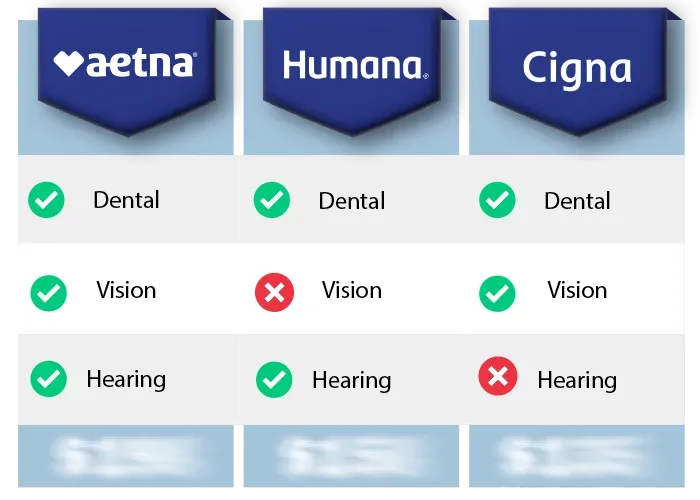
Medigap Definition: Bridging the Gaps in Medicare Coverage
Medigap Definition: Bridging the Gaps in Medicare Coverage
Medicare, a vital health insurance program for seniors and certain disabled individuals, offers a broad range of benefits. However, it doesn't cover everything. Enter Medigap, a supplemental insurance designed to fill the voids left by Medicare. This article will guide you through the nuances of Medigap, helping you understand its significance, how it contrasts with Medicare Advantage, and its pivotal role in safeguarding beneficiaries from unexpected medical costs.
Understanding Medigap
Medigap, as the name suggests, is designed to "gap" or cover the spaces left by Original Medicare. These spaces refer to out-of-pocket costs like deductibles, copayments, and coinsurance. Medigap policies are sold by private insurance companies and are meant to work in tandem with Medicare Parts A and B.
For instance, if you have an overseas trip and require medical attention, certain Medigap policies can cover these international health care costs, which Original Medicare might not cover. The primary objective of Medigap is to ensure beneficiaries aren't burdened with unexpected medical bills.
Medigap vs. Medicare Advantage
It's essential to distinguish between Medigap and Medicare Advantage. While both offer additional benefits, they serve different purposes. Medicare Advantage, also known as Part C, is an alternative way to receive Medicare benefits. It often includes additional perks like vision, dental, and hearing coverage. On the other hand, Medigap strictly serves as a supplemental plan, filling the gaps in Original Medicare coverage.
Cost Implications of Medigap
Opting for Medigap means an additional monthly premium on top of what you pay for Medicare Part B. This premium varies based on the private insurance carrier and the specific Medigap plan you choose. It's crucial to shop around and compare policies to find one that aligns with your health needs and budget.
What Does Medigap Cover?
Primarily, Medigap plans are tailored to cover out-of-pocket costs for services that Medicare covers. It's not designed to provide benefits for services that Medicare doesn't cover. For instance, routine dental and vision care aren't typically covered by Medigap since Original Medicare doesn't offer these either.
Eligibility and Enrollment
To be eligible for a Medigap policy, you must have Medicare Part A and Part B. It's advisable to enroll in a Medigap plan during your Medigap open enrollment period, which begins the month you turn 65 and lasts for six months. During this period, insurance companies can't use medical underwriting, meaning they can't charge higher premiums based on health status or deny coverage.
In Conclusion
Medigap plays a pivotal role in ensuring that Medicare beneficiaries aren't caught off guard by unexpected medical expenses. By understanding its benefits and how it complements Original Medicare, individuals can make informed decisions about their health coverage, ensuring peace of mind and financial security in their golden years.
With the ever-evolving landscape of health insurance, it's crucial to stay informed and understand the tools at your disposal. Medigap, with its supplemental benefits, offers a safety net for many, ensuring that health care remains accessible and affordable. Whether you're approaching retirement age or assisting a loved one in navigating their health coverage options, understanding Medigap can make a significant difference in health outcomes and financial well-being.

Copyright © 2025 Senior Benefits Guide All Rights Reserved.
204 Church St Suite 1A, Boonton NJ 07005
Disclaimer: This website is not affiliated with the Medicare/Medicaid program or any other government entity. The information provided on this website is for informational purposes only. It is not intended to be, nor does it constitute any kind of financial advice. Please seek advice from a qualified professional prior to making any financial decisions based on the information provided. This website acts as an independent digital media & advertising publisher. This webpage is formatted as an advertorial. An advertorial is an advertisement that is written in an editorial news format. PLEASE BE AWARE THAT THIS IS AN ADVERTISEMENT AND NOT AN ACTUAL NEWS ARTICLE, BLOG, OR CONSUMER PROTECTION UPDATE. This website MAY RECEIVE PAID COMPENSATION FOR CLICKS OR SALES PRODUCED FROM THE CONTENT FOUND ON THIS WEBPAGE. This compensation may affect which companies are displayed, the placement of advertisements, and their order of appearance. Any information, discounts, or price quotations listed may not be applicable in your location or if certain requirements are not met. Additionally, our advertisers may have additional qualification requirements.
Our goal is to provide exceptional service. One of our agents may reach out to you to discuss your order, ask for feedback, and/or see if you need any assistance with your products, services, or plans, at the phone number you provided regardless of your do-not-call list status. You may opt-out of further contact at any time by simply telling our customer service team that you would no longer like to be contacted. In the event that our team is unable to reach you by phone, they may send you a text message letting you know that we called. Both our text messages and phone calls may be sent or connected utilizing automated software. Carrier charges may apply. You may opt-out of any future contact via text message by replying anytime with "STOP".
Copyright © 2025 All Rights Reserved.
Find Medicare Advantage Plans in 3 Easy Steps

